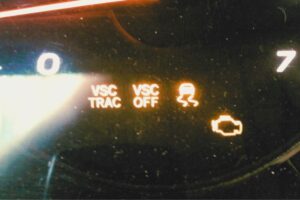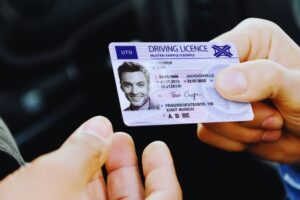Vehicle owners may have one question at the back of their minds: if they can drive without a valid driver’s license? So, how long can you go without renewing your driver’s license?
Depending on your location, you must renew your driver’s license every four or five years. For some, it’s five years. Those who first got their license when they were 16 should go back and renew at age 20. As a best practice, renew your driver’s license several days before the expiration date.
So you must renew your license before the expiration date. Such a date is printed on the card. Remember that date, and don’t go over one day without renewing your license, or you’ll be penalized.
Read on to learn more about how long you can go without renewing your driver’s license and the steps involved in renewing.
How Long Can You Go Without Renewing Your Driver’s License?
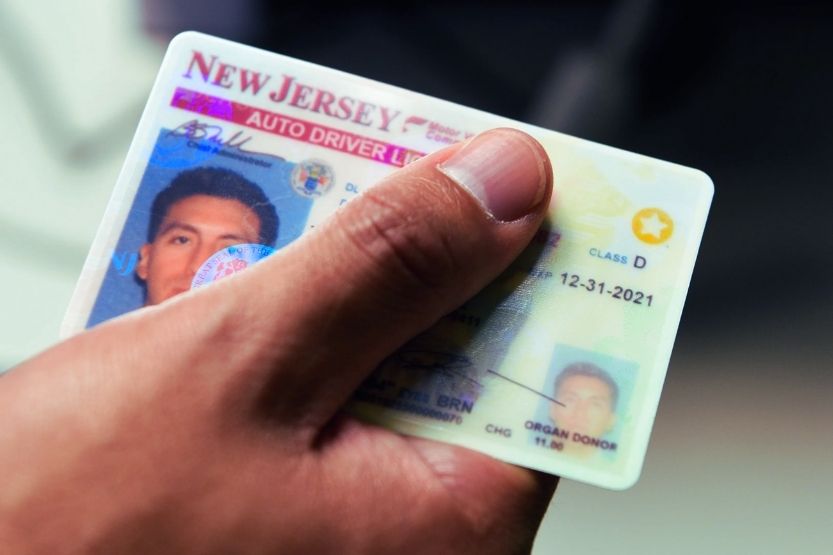
Renew Your Driver’s License Days Before the Expiration Date
You must renew your driver’s license every four years in most states. For some, it’s five years. This means that those who first got their license when they were 16 should go back and renew at age 20. As a best practice, renew your driver’s license several days before the expiration date.
Go to the Assigned Place in Your Area
Just go to the assigned place in your area to renew your driver’s license, either at the Department of Motor Vehicles office or at a local courthouse. To know precisely, contact the local authorities.
As you renew your license, be sure to prepare for the long wait. Most likely, you’ll only get a temporary copy of your license on the day of renewal. Many organizations do not accept this paper copy as proof of identity, so you’ll have to wait for the actual driver’s license to arrive before using it for legal business. But if a police officer pulled you over, you can show your expired driver’s license and a temporary copy of your license.
Update Profile During the Renewal Process
Also, you have to update your profile during the renewal process. Inform the person in charge of any changes in your address or name. If you must update your hair color and weight, you can do so as well. You need to do this so that the latest photograph in your driver’s license matches the information on the card.
A Temporary License Card Is Only Valid for 30 Days
Do note that your temporary license card is only valid for 30 days. They will mail you the permanent copy within this time. Again, never drive if your driver’s license has expired, or you might end up getting traffic citations or heavy fines. This should answer the question of how often do you have to renew your driver’s license.
What Is the Penalty for Not Changing Driver’s License?
Since a driver’s license is a major requirement when on the road, the failure to change, update or renew your driver’s license is punishable by law. It is a crime to drive with an expired driver’s license in many states.
If you drive with an expired driver’s license, the court will charge you with a misdemeanor, punishable with fines, or even a few months in jail. The court may also suspend your license. Also, note that you must change your driver’s license to your new state if you’ve moved.
Most states require individuals to change the address on their driver’s license and vehicle registration within thirty days after moving. This is because you need your driver’s license info to register as a voter and for tax filing.
Changing your driver’s license info is also necessary for insurance purposes. Most insurance companies use your present address to determine your insurance premium rate. They would consider the risks associated with driving and living in such a location. Updating your info will mean a smoother process for your insurance company.
What Happens If You Drive a Car Without a Valid Driver’s License?
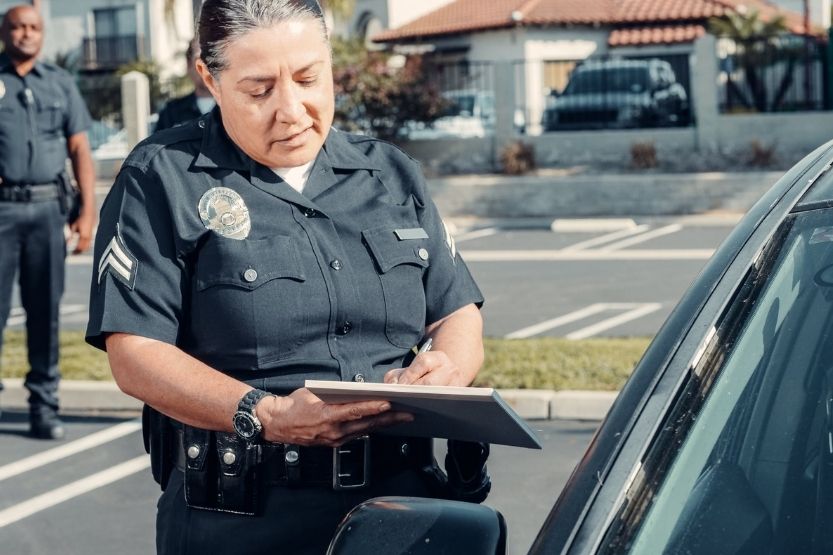
If you drive without a license, a police officer will stop and apprehend you. There are many reasons why the police could stop you, such as turning on a corner too fast, forgetting to turn on your headlights or any other driving infractions.
Expect Summons If an Enforcer Catches You Violating Traffic Laws
If an officer caught you violating a traffic law without a valid driver’s license, then all you get is a simple apprehension. But with an expired driver’s license, things will be more complicated. Your fines may even depend on how long you have gone without renewing your driver’s license.
Some police officers are considerate enough to let you go if you’re just a few days over the deadline. Otherwise, expect to get a summons. When an enforcer catches you, and you can’t present a valid driver’s license, he won’t allow you to drive home. The officer will ask you to call somebody to pick you up and drive your car. If there is no one you can call to drive you home, the police will tow your car without your permission.
Insurance May Lapse Along with Your Driver’s License
It is also worth noting your car insurance may lapse along with your driver’s license. Meaning if your insurance premiums are up to date, the company will deny your claims if you’re driving with an expired license. This is yet another reason why every driver should be keen on renewing their licenses on time, regardless of which state they’re in.
How to Renew Your Driver’s License
Every state has its procedures to follow when renewing a driver’s license. But generally, you can follow the steps below:
- Go to the designated area for renewing a driver’s license. Be sure to do so days or weeks before your license expires to avoid problems.
- Update your information. Bring your old driver’s license with you. They will use it as a reference when updating your info.
- Take your photograph. Make yourself look presentable in your new driver’s license photo. Remember that you’ll be using that card in the next few years.
- Pay the fees. The amount that you’ll have to pay may vary from state to state. Check with the officers how much the renewal fees are in your area.
- Get your temporary license. In some states, you can immediately obtain a temporary license. In others, the state will send it to you through the mail. Note that this temporary license is valid for a month and you may use it for identification on the road until you get the actual license. Expect the card in your mail within six weeks.
Again, how long can you go without renewing your driver’s license? Some states require you to renew your driver’s license every four years, while some require you to renew it every five years. Note that you should renew your license days before its expiration date.
Is There An Extension for Renewing a Driver’s Licence?
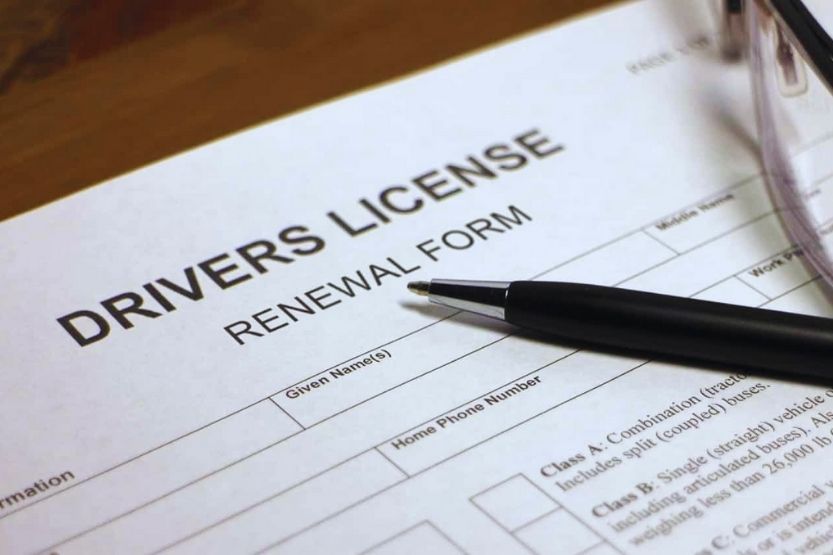
A driver’s license renewal date is given no extensions during regular times. However, during the Covid-19 pandemic, local agencies all over the US gave drivers some leeway when renewing their driver’s licenses:
- Alabama, Colorado, Florida, Iowa, Kansas, Missouri, New Jersey, Texas, and Wisconsin: These states gave drivers a grace period of 60 days.
- Hawaii, Kentucky, Montana, Ohio, Rhode Island, Vermont, Virginia, Washington, West Virginia, and Wyoming: These states gave a 90-day extension for drivers.
- Alaska, Arizona, New Hampshire, and Tennessee: These states gave drivers as much as six months grace period to renew their licenses.
To know for sure about the extensions provided by your state, be sure to contact the local offices that handle driver’s license renewal.
Can I Renew My Driving Licence Online?
Some states also offer online driver’s license renewal. However, this option is not available to all. For example, those who are allowed to renew their licenses online are only the ones who don’t need to change any personal information on their driver’s license. Certain driver’s licenses can’t be renewed online, such as a commercial driver’s license.
On the other hand, some states allow drivers to renew their licenses by mail. All one must do is fill out the form sent to them and a check for the renewal fees. But like online driver’s license renewal, there are some guidelines to be followed. It is not available to all, especially to those with driving probations and suspensions or violations for appearing in court.
When renewing a driver’s license online or through the mail, a driver must also declare certain physical conditions that prohibit driving safely, including injuries and poor vision. However, if the situation is only temporary, like fractures or pregnancy, you should report your current condition. Learn more about this from your local agencies.
In Closing
After reading everything, it should be easier to answer the question, “How often do you have to renew your license?” While the exact answer may differ from state to state, the idea is generally the same. You should renew it before the date that appears on your license card. The failure to do so may mean infractions on your part.
Generally, a driver’s license must be renewed every four or five years, depending on where you are. Some states won’t impose a fine on drivers that fail to renew their license before the deadline, but some do. Either way, you will get a penalty for driving with an expired driver’s license, except in places where a grace period is given relative to the current times.
It is always best practice to renew your license a week or so before it expires. Never drive with an expired driver’s license, as you will get a fine if you do. Your car insurance will also be null and void if you drive with an expired driver’s license.

![How to Start a Car Without a Key [Turn Ignition Without Key] how to start a car without a key](https://roadsumo.com/wp-content/uploads/2021/06/how-to-start-a-car-without-a-key-150x150.jpg)



![How to Find Your Driver’s License Number [5 Ways] how to find my driver's license number](https://roadsumo.com/wp-content/uploads/2022/03/how-to-find-my-drivers-license-number-150x150.jpg)

